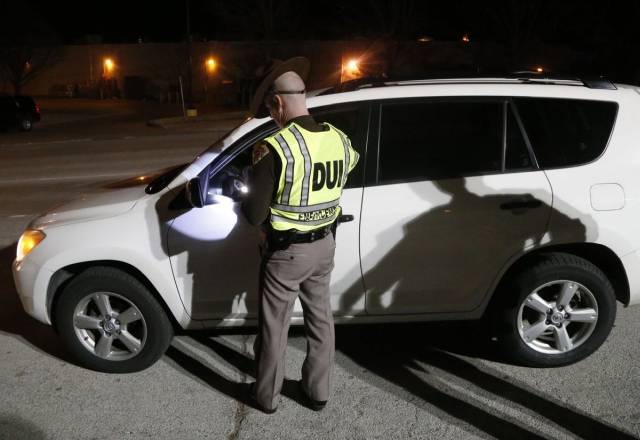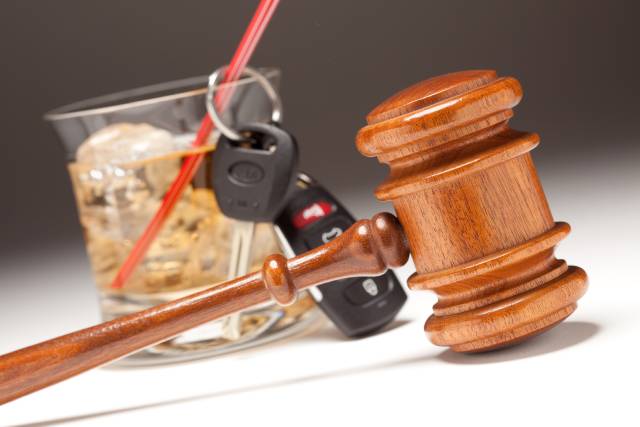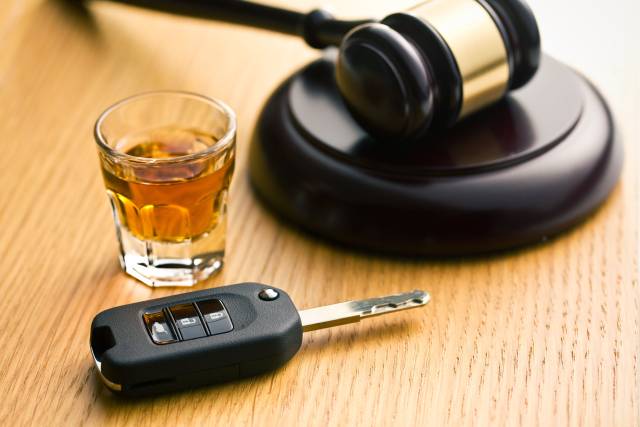In Colorado, being charged with a first-time DUI offense can result in a variety of penalties. This article aims to provide an objective and informative analysis of the ten best first-time DUI penalties in the state.
From fines and license suspension to alcohol education programs and vehicle impoundment, each penalty will be examined in terms of its effectiveness and impact.
By exploring these penalties, individuals can gain a better understanding of the consequences associated with a first-time DUI conviction in Colorado.
Fine
First-time DUI offenders in Colorado may face a substantial monetary penalty. The state of Colorado has implemented strict laws and regulations regarding driving under the influence, aiming to deter individuals from engaging in such reckless behavior. The fine for a first-time DUI offense can range from $300 to $1,000, depending on the specific circumstances of the case. Factors such as blood alcohol concentration (BAC) level, the presence of any aggravating circumstances, and the offender’s previous driving record can all influence the final fine amount.
It is important to note that the fine is just one aspect of the penalties imposed on first-time DUI offenders in Colorado. In addition to the monetary penalty, individuals may also face the suspension of their driver’s license, mandatory alcohol education or treatment programs, probation, and even possible jail time. These consequences are designed to not only punish offenders but also to prevent future instances of drunk driving and protect the safety of the public.
The severity of the fine highlights the seriousness with which Colorado views DUI offenses. By imposing substantial monetary penalties, the state aims to discourage individuals from driving under the influence and promote responsible and safe driving practices. It is crucial for first-time DUI offenders to understand the potential financial ramifications of their actions and take steps to avoid repeating such behavior in the future.
License Suspension
Offenders convicted of a DUI in Colorado may have their driver’s license suspended. License suspension is a common penalty for those found guilty of driving under the influence. Here are three important things to know about license suspension in Colorado:
- Length of suspension: The duration of license suspension for a first-time DUI offense in Colorado is typically 9 months. However, offenders may be eligible for early reinstatement after serving a mandatory 1-month suspension period, provided they complete an alcohol education and treatment program.
- Restricted driving privileges: During the suspension period, offenders may be eligible for a restricted license that allows them to drive for specific purposes, such as work, school, or medical appointments. This restricted license comes with certain conditions and may require the installation of an ignition interlock device.
- License reinstatement: To reinstate their license after the suspension period, offenders must pay a reinstatement fee, provide proof of completion for any required alcohol education or treatment programs, and fulfill any other conditions set by the court.
It is important for individuals facing a DUI charge in Colorado to understand the potential consequences of license suspension and to seek legal advice to navigate the process effectively.
Ignition Interlock Device
During the suspension period, individuals convicted of a DUI in Colorado may be required to install an ignition interlock device as part of their restricted driving privileges. An ignition interlock device is a breathalyzer-like device that is installed in a vehicle’s dashboard. It requires the driver to provide a breath sample before starting the vehicle. If the device detects alcohol above a certain threshold, the vehicle will not start. The purpose of this device is to prevent individuals from driving under the influence and to ensure public safety.
The use of ignition interlock devices has been shown to be effective in reducing repeat DUI offenses. According to a study conducted by the Centers for Disease Control and Prevention, states that implemented ignition interlock programs experienced a 67% reduction in repeat DUI offenses compared to states without such programs. Colorado has recognized the efficacy of ignition interlock devices and has made it a mandatory requirement for individuals convicted of a DUI.
Here is a table illustrating the key features of ignition interlock device requirements in Colorado:
| Requirement |
Duration |
| First offense |
Minimum 8 months |
| Second offense |
Minimum 2 years |
| Third offense |
Minimum 4 years |
It is important to note that the duration of ignition interlock device requirements may vary depending on the specific circumstances of the DUI offense. Individuals should consult with their legal counsel or the Colorado Department of Revenue for accurate and up-to-date information.
The installation and maintenance costs of an ignition interlock device are the responsibility of the individual convicted of the DUI. These costs can range from $50 to $200 per month. Failure to comply with the ignition interlock device requirements can result in additional penalties and may prolong the period of restricted driving privileges.
Alcohol Education and Treatment Program
The Alcohol Education and Treatment Program in Colorado offers a comprehensive and structured approach for individuals convicted of a DUI to address their alcohol-related issues and promote responsible behavior. This program aims to provide education, counseling, and support services to participants, helping them understand the consequences of their actions and make positive changes in their lives.
Here are three key components of the Alcohol Education and Treatment Program in Colorado:
- Evaluation and Assessment: Participants undergo a thorough evaluation and assessment to determine the extent of their alcohol-related issues and the appropriate level of treatment. This process helps identify any underlying factors contributing to their alcohol abuse and guides the development of an individualized treatment plan.
- Education and Counseling: The program includes educational classes and counseling sessions that focus on alcohol abuse prevention, the impact of alcohol on physical and mental health, and strategies for responsible drinking. Participants learn coping mechanisms, stress management techniques, and relapse prevention strategies to support their long-term recovery.
- Support and Aftercare: The program emphasizes the importance of ongoing support and aftercare for individuals completing the treatment. This may include referrals to community support groups, individual counseling, and follow-up assessments to monitor progress and provide additional guidance if needed.
The Alcohol Education and Treatment Program in Colorado plays a crucial role in helping individuals convicted of a DUI address their alcohol-related issues and make positive changes in their lives. By providing education, counseling, and ongoing support, this program aims to reduce the likelihood of future DUI offenses and promote responsible alcohol use.
Community service is a common penalty for first-time DUI offenders in Colorado, as it provides an opportunity for offenders to give back to their community while also serving as a deterrent for future offenses.
The benefits of community service include promoting a sense of responsibility, encouraging personal growth, and fostering empathy towards others.
However, it is important to note that there may be alternatives to community service depending on the circumstances of the case and the defendant’s willingness to participate.
Community service is often included as part of the penalties for first-time DUI offenders in Colorado. While the primary purpose of community service is to provide a form of punishment for the offense committed, it also offers several benefits for the offenders themselves. These benefits include:
- Restorative Justice: Community service allows offenders to make amends for their actions by giving back to the community. It promotes a sense of responsibility and accountability, helping them understand the impact of their actions on others.
- Education and Awareness: Engaging in community service programs related to alcohol abuse and prevention can educate first-time DUI offenders about the dangers of drunk driving. It raises awareness and helps them make better choices in the future.
- Skill Development: Community service can provide valuable opportunities for skill development and personal growth. From teamwork to problem-solving, offenders can acquire new skills that may positively impact their lives and future employment prospects.
One alternative to community service for first-time DUI offenders in Colorado is exploring other forms of restitution. While community service is a commonly imposed penalty, there are other options available that can still hold the offender accountable and provide restitution to the community. These alternatives may include fines, alcohol and drug education programs, probation, and ignition interlock device installation.
The table below provides a comparison of these alternative penalties:
| Alternative Penalty |
Description |
Purpose |
| Fines |
Monetary penalties imposed on the offender. |
Deterrence, financial restitution |
| Alcohol and Drug Education |
Completion of educational programs related to substance abuse. |
Rehabilitation, awareness, prevention |
| Probation |
Supervised period during which the offender must meet certain conditions. |
Rehabilitation, monitoring, compliance |
| Ignition Interlock Device |
Installation of a breathalyzer device in the offender’s vehicle. |
Prevention, monitoring, ensuring sobriety while driving |
These alternatives provide a range of options that can be tailored to the individual’s circumstances, promoting accountability and addressing the underlying issues that contribute to DUI offenses. It is important for first-time DUI offenders and their legal representatives to explore these alternatives and determine the most suitable form of restitution.
Probation
A common option for first-time DUI offenders in Colorado is to receive probation. Probation allows offenders to serve their sentence in the community under certain conditions, rather than being incarcerated. Here are three key aspects of probation for first-time DUI offenders in Colorado:
- Supervision: Offenders on probation are assigned a probation officer who monitors their compliance with the terms of probation. This includes regular check-ins, drug and alcohol testing, and participation in counseling or treatment programs.
- Conditions: Probation typically comes with specific conditions that must be met. These may include attending alcohol education classes, completing community service, paying fines and restitution, and refraining from alcohol use or entering establishments that primarily serve alcohol.
- Duration: The length of probation can vary but is typically between one and two years for first-time DUI offenders. If the offender violates the terms of probation, such as by committing another offense or failing to comply with the conditions, the probation can be extended or revoked, leading to incarceration.
Probation offers an opportunity for first-time DUI offenders to learn from their actions, take responsibility, and make positive changes in their lives. It allows them to avoid incarceration while still facing consequences for their actions. However, it is important for offenders to strictly adhere to the terms of probation to successfully complete their sentence and avoid further legal trouble.
Jail Time
Jail time is another potential consequence for first-time DUI offenders in Colorado, building upon the discussion of probation as a potential penalty. While probation offers an alternative to incarceration, there are certain circumstances where jail time may be imposed. The length of jail time for a first-time DUI offense in Colorado is typically determined by various factors, including blood alcohol concentration (BAC) level, prior criminal history, and the presence of any aggravating circumstances.
In Colorado, the minimum jail time for a first-time DUI offense is five days, with a maximum sentence of one year. However, judges have the discretion to impose longer sentences if they deem it necessary. The severity of the offense, such as a high BAC level or reckless driving, can lead to increased jail time. Additionally, if the DUI offense resulted in property damage, injury, or death, the penalties can be significantly more severe.
It is important to note that first-time DUI offenders may be eligible for alternative sentencing options, such as work release programs or electronic home monitoring, which allow individuals to serve their sentences while still maintaining employment or fulfilling other responsibilities. These alternatives aim to balance the need for punishment with the goal of rehabilitation.
Ultimately, the decision to impose jail time for a first-time DUI offense in Colorado rests with the judge, who considers the specific circumstances of each case. It is crucial for individuals facing DUI charges to seek the guidance of an experienced attorney to ensure their rights are protected and to explore potential defense strategies.
Vehicle Impoundment
Vehicle impoundment is a significant legal consequence for individuals convicted of a first-time DUI in Colorado. Understanding the legal implications of impoundment is important in this discussion. Exploring alternatives to impoundment is another point to consider. Additionally, considering the impact on repeat offenders is crucial. By examining these points, we can gain a comprehensive understanding of the implications and potential alternatives regarding vehicle impoundment for first-time DUI offenders in Colorado.
Legal Implications of Impoundment
What are the legal implications of impoundment for first-time DUI offenders in Colorado?
- Vehicle Impoundment:
First-time DUI offenders in Colorado may face the impoundment of their vehicle as a legal consequence. This means that their vehicle will be seized and held by law enforcement for a specified period.
- Duration of Impoundment:
The duration of impoundment can vary depending on the circumstances of the DUI offense. In some cases, it may last for a few days or weeks, while in more severe cases, it could extend up to the duration of the offender’s license suspension or even longer.
- Costs and Retrieval:
Impoundment comes with various costs, including towing fees, storage fees, and administrative fees. To retrieve their impounded vehicle, offenders must pay these fees and provide proof of insurance and a valid driver’s license.
It is important for first-time DUI offenders in Colorado to be aware of the potential legal implications of vehicle impoundment and to understand the process and costs involved to retrieve their vehicle.
Alternatives to Vehicle Impoundment
One alternative to vehicle impoundment for first-time DUI offenders in Colorado is the use of ignition interlock devices. These devices are installed in the offender’s vehicle and require them to pass a breathalyzer test before starting the car. If alcohol is detected on their breath, the vehicle will not start. Ignition interlock devices aim to prevent drunk driving by acting as a deterrent and ensuring that the offender is sober before operating their vehicle.
This alternative to impoundment allows first-time offenders to still have access to their vehicle while holding them accountable for their actions. Additionally, ignition interlock devices provide data on the offender’s alcohol consumption and attempts to start the vehicle while under the influence, which can be useful for monitoring and assessing their progress in addressing their behavior.
Impact on Repeat Offenders
Repeat offenders of DUI in Colorado face significant penalties, including vehicle impoundment. This measure is implemented to discourage individuals from committing multiple DUI offenses and to ensure public safety.
The impact of vehicle impoundment on repeat offenders is as follows:
- Loss of transportation: Vehicle impoundment leaves repeat DUI offenders without a means of transportation, making it difficult for them to commute to work, attend appointments, or fulfill personal responsibilities.
- Financial burden: Impound fees, storage charges, and towing expenses can add up quickly, placing a heavy financial burden on repeat offenders. This can further exacerbate the consequences of their actions and hinder their ability to recover.
- Deterrent effect: By impounding the vehicles of repeat DUI offenders, the authorities aim to deter them from committing future offenses. The inconvenience and financial strain associated with vehicle impoundment serve as a deterrent, discouraging individuals from engaging in risky behavior.
It is important for repeat DUI offenders to consider the long-term consequences of their actions and seek help to address any underlying issues contributing to their behavior.
Increased Insurance Rates
First-time DUI offenses in Colorado can result in a significant increase in insurance rates for drivers. Insurance companies view DUI convictions as a risk factor, indicating that drivers with a history of impaired driving are more likely to be involved in accidents. As a result, insurance premiums are often raised to offset the increased risk.
To illustrate the potential impact of a DUI conviction on insurance rates, consider the following hypothetical scenario:
| Insurance Company |
Current Premium |
DUI Conviction Premium |
| Company A |
$800 |
$2,500 |
| Company B |
$1,000 |
$3,000 |
| Company C |
$900 |
$2,800 |
| Company D |
$1,200 |
$3,500 |
| Company E |
$1,100 |
$3,200 |
These numbers demonstrate the range of premium increases that drivers in Colorado may face after a DUI conviction. As shown, the increase in premiums can be substantial, potentially doubling or tripling the original cost. It is important to note that the actual increase will vary depending on factors such as the driver’s age, driving history, and the insurance company’s policies.
It is crucial for drivers to understand that the consequences of a DUI conviction extend beyond legal penalties. The financial burden of increased insurance rates can have a long-lasting impact on their personal finances. Therefore, it is essential to exercise caution and make responsible choices to avoid such consequences.
Criminal Record
Having a DUI conviction on your criminal record can have long-term employment consequences and impact future opportunities. Employers often conduct background checks and a DUI conviction can be seen as a red flag, potentially affecting your ability to secure certain jobs or promotions.
Additionally, having a DUI on your record may limit your access to certain professional licenses or certifications in the future.
Long-Term Employment Consequences
The criminal record resulting from a DUI conviction in Colorado can have significant long-term employment consequences. Employers often conduct background checks on potential employees, and a DUI conviction can negatively impact a candidate’s chances of securing a job. Here are three ways a criminal record from a DUI conviction can affect long-term employment:
- Limited job opportunities: Many employers have policies against hiring individuals with a criminal record, especially for positions that require driving or handling sensitive information. This can significantly decrease the number of job opportunities available to someone with a DUI conviction.
- Professional licensure: Certain professions, such as healthcare, law, or teaching, require professional licensure. However, a DUI conviction may lead to the denial or revocation of a license, making it difficult for individuals to continue working in their chosen field.
- Career advancement: A criminal record can hinder career advancement opportunities. Employers may be hesitant to promote an employee with a DUI conviction, as it may reflect poorly on the company’s image or raise concerns about the individual’s reliability and judgment.
It is crucial for individuals facing a DUI conviction to understand the potential long-term employment consequences and take appropriate steps to minimize their impact.
Impact on Future Opportunities
A DUI conviction in Colorado can significantly impact future opportunities for individuals due to the resulting criminal record.
Having a criminal record can create barriers in various areas of life, including employment, education, housing, and even personal relationships.
When applying for jobs, individuals with a DUI conviction may face difficulties as employers often conduct background checks. This can lead to limited job prospects, especially in industries that prioritize safety or require driving.
Additionally, educational institutions may consider a DUI conviction during the application process, potentially affecting admissions decisions.
When seeking housing, landlords may also reject applicants with a criminal record, making it challenging to find suitable accommodation.
Furthermore, a DUI conviction can strain personal relationships, as it may be viewed as a reflection of poor judgment and irresponsible behavior.
Conclusion
In conclusion, Colorado imposes various penalties for first-time DUI offenses. These penalties include fines, license suspension, ignition interlock device installation, participation in alcohol education and treatment programs, community service, jail time, vehicle impoundment, increased insurance rates, and a criminal record.
These penalties aim to deter individuals from driving under the influence and protect public safety. It is important for individuals to understand the consequences they may face if convicted of a DUI in Colorado.









